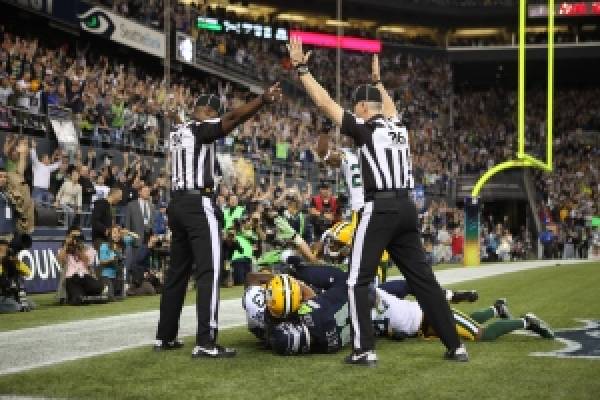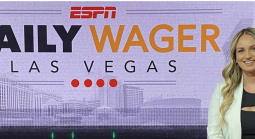Blown Call Caused $1 Billion to Change Hands in Sports Betting

LAS VEGAS (CBS /Associated Press) — A top oddsmaker believes last night’s controversial blown call was worth a billion dollars in sports betting.
Danny Sheridan, a USA Today sports analyst and handicapper, told ESPN.com that he believes $1 billion in total money changed hands after the replacement officials awarded Seattle Seahawks wide receiver Golden Tate a touchdown catch despite Green Bay Packers defensive back M.D. Jennings clearly in possession of the football.
Other Las Vegas oddsmakers, however, believe $300 million or more changed hands worldwide on the blown call.
Sports book chief Jay Kornegay said Tuesday that bettors at The LVH casino registered shock, some celebration, then anger when the outcome of the Packers game against the Seahawks was decided due to what he called “a blatant bad call.”
The Seahawks won 14-12 after referees ruled that a Seattle receiver came down with the ball in a pile of bodies in the end zone.
Gambling expert RJ Bell of Las Vegas-based Pregame.com says he thinks two-thirds of bets worldwide were on the Packers, and that sports books took in at least $150 million because of the call.
The NFL upheld the Seahawks’ disputed 14-12 win over the Packers and resumed meetings with its locked-out officials in an attempt to resolve an impasse that has prompted torrents of criticism against the replacement refs.
The NFL said Tuesday that Seattle’s last-second touchdown pass should not have been overturned — but conceded Tate should have been called for offensive pass interference before the catch.
Two people with knowledge of the talks told The Associated Press that the two sides were meeting Tuesday. The people spoke on condition of anonymity because the discussions were not made public.
The ire of coaches, players and fans at the struggles of the replacements had been steadily building this season, and it reached an apex Monday with what everybody had feared would happen: a highly questionable call deciding a game.
The NFL locked out the officials in June after their contract expired. Unable to reach a new collective bargaining agreement, the league opened the season with replacements, most with experience only in lower levels of college football.














